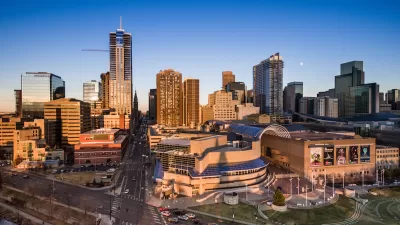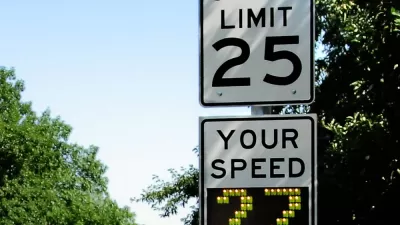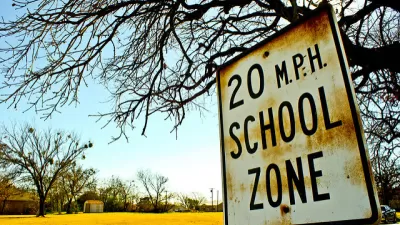Denver, dealing with an increase in traffic fatalities during the pandemic, has lowered speed limits on some residential streets. Critics say the new law neglects the most needed traffic safety changes.

"The default speed limit on Denver’s unposted streets will soon be lowered from 25 mph to 20 mph after the Denver City Council approved the change Monday," reports Hannah Metzger for The Denver Gazette.
"The approved measure will reduce the default speed on city streets where no limit is posted, applying most specifically to neighborhood streets with no center line," adds Metzger. "The Department of Transportation said it will also decrease the speed limits of posted neighborhood streets to 20 mph beginning in 2022."
Councilmember Kendra Black was the sole no vote on the change. The article provides space for the councilmember to make the case that the speed limit changes are targeting the wrong kind of street, with arterials the source of the most carnage on local roads.
Like many other Vision Zero cities, the recent years has been particularly deadly—with the most fatalities since the city announced its Vision Zero initiative in 2016. There does seem to be an uptick in the number of cities lowering speed limits. Norfolk, Virginia was the previous example picked up by Planetizen.
FULL STORY: Denver to lower neighborhood speed limits to 20 mph

Montreal Mall to Become 6,000 Housing Units
Place Versailles will be transformed into a mixed-use complex over the next 25 years.

Planetizen Federal Action Tracker
A weekly monitor of how Trump’s orders and actions are impacting planners and planning in America.

DARTSpace Platform Streamlines Dallas TOD Application Process
The Dallas transit agency hopes a shorter permitting timeline will boost transit-oriented development around rail stations.

Interactive Map Reveals America's “Shade Deserts”
Launched by UCLA and American Forests to combat heat-related deaths, the tool maps the shade infrastructure for over 360 U.S. cities.

Bicycles and Books — In Sacramento, Libraries Now Offer Both
Adult library card holders can check out e-bikes and e-trikes for up to one week.

Colorado Landfills Emit as Much Pollution as 1M Cars
Landfills are the third-largest source of methane pollution in Colorado, after agriculture and fossil fuel extraction.
Urban Design for Planners 1: Software Tools
This six-course series explores essential urban design concepts using open source software and equips planners with the tools they need to participate fully in the urban design process.
Planning for Universal Design
Learn the tools for implementing Universal Design in planning regulations.
City of Mt Shasta
City of Camden Redevelopment Agency
City of Astoria
Transportation Research & Education Center (TREC) at Portland State University
US High Speed Rail Association
City of Camden Redevelopment Agency
Municipality of Princeton (NJ)





























